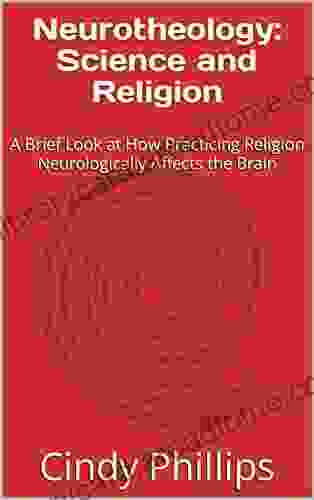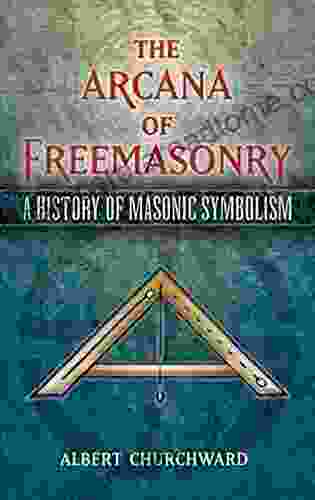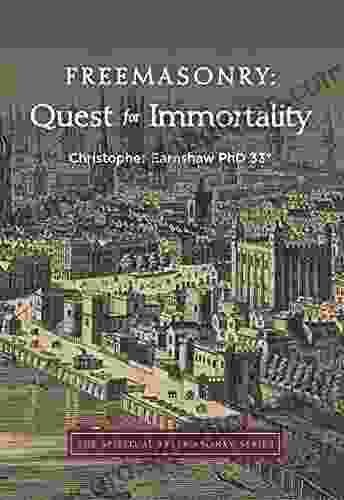Unveiling the Neurological Symphony of Religion: A Profound Exploration

At the heart of human experience, religion has profoundly shaped our societies and individual lives for millennia. Its influence extends beyond the realm of belief and practice, reaching deep into the intricate network of our brains, leaving an indelible mark on our neurology.
4 out of 5
| Language | : | English |
| File size | : | 813 KB |
| Text-to-Speech | : | Enabled |
| Screen Reader | : | Supported |
| Enhanced typesetting | : | Enabled |
| Word Wise | : | Enabled |
| Print length | : | 16 pages |
| Lending | : | Enabled |
Neurological Transformations Sparked by Faith
Research into the neurological effects of religion has illuminated a symphony of transformations within our brains. One of the most striking findings is the activation of areas associated with empathy, compassion, and social bonding. When individuals engage in religious practices such as meditation or prayer, these regions burst into heightened activity, fostering a sense of connection and belonging.
Moreover, religious practices have been shown to modulate the activity of the default mode network, a set of brain regions that become active when we are not actively engaged in external tasks. This network is often associated with self-referential thinking and rumination. However, religious practices can redirect this activity towards more positive and altruistic thoughts, reducing stress and promoting emotional well-being.
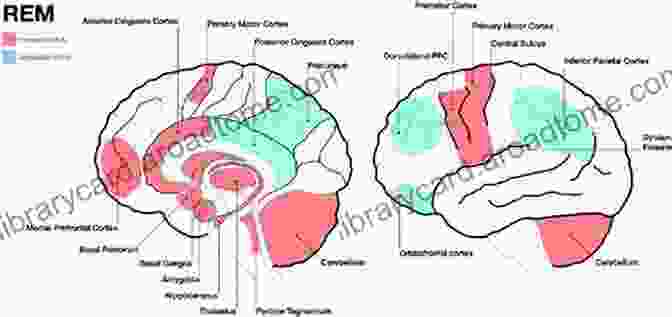
The Neurobiology of Belief
The neurological effects of religion extend beyond practices to the very core of our beliefs. Studies have revealed that individuals with strong religious beliefs exhibit increased activity in areas of the brain associated with semantic memory, the storage of factual knowledge. This suggests that religious beliefs are deeply embedded in our cognitive structures, shaping how we perceive and interpret the world around us.
Furthermore, research has shown that religious beliefs can influence the way we process information. For example, individuals with religious beliefs tend to exhibit a confirmation bias, seeking out information that confirms their existing beliefs while discounting contradictory evidence. This bias can have profound implications for our ability to critically evaluate information and make informed decisions.
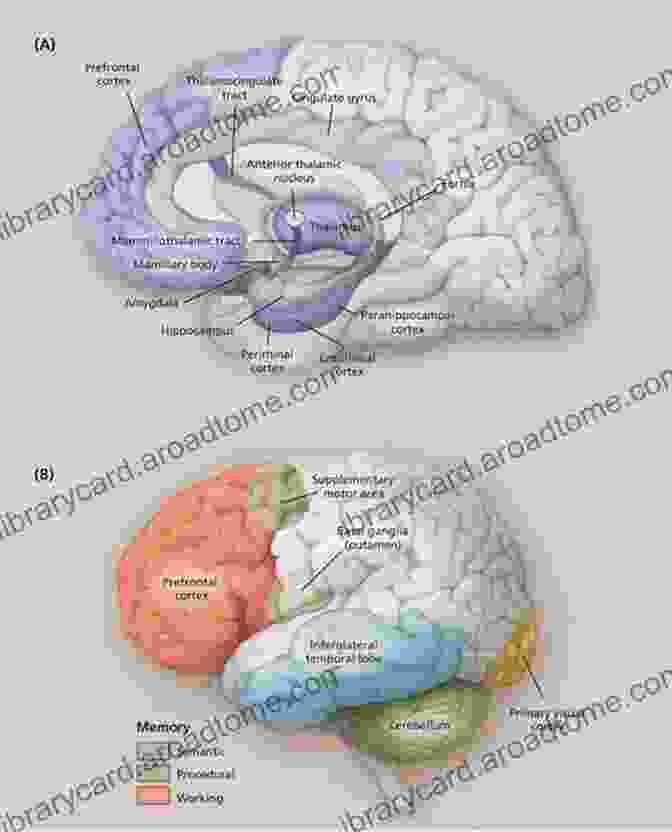
The Cognitive and Emotional Impact
The neurological transformations sparked by religion have a profound impact on our cognitive and emotional well-being. Religious practices have been associated with a range of positive outcomes, including:
- Reduced stress and anxiety
- Improved mood and optimism
- Enhanced sense of purpose and meaning
- Greater resilience in the face of adversity
However, it is important to note that the effects of religion are not always positive. Religious practices can also be associated with:
- Confirmation bias and reduced critical thinking
- Intolerance and prejudice towards those outside the religious community
- In some cases, religious practices can contribute to mental health problems
The interplay between religion and the human brain is a complex and fascinating field of study. Research has illuminated the profound neurological transformations sparked by religious practices and beliefs, shaping our cognitive, emotional, and social well-being.
As we continue to explore this enigmatic relationship, we gain a deeper understanding of the human psyche and the intricate ways in which our beliefs and practices shape our very essence.
4 out of 5
| Language | : | English |
| File size | : | 813 KB |
| Text-to-Speech | : | Enabled |
| Screen Reader | : | Supported |
| Enhanced typesetting | : | Enabled |
| Word Wise | : | Enabled |
| Print length | : | 16 pages |
| Lending | : | Enabled |
Do you want to contribute by writing guest posts on this blog?
Please contact us and send us a resume of previous articles that you have written.
 Book
Book Novel
Novel Page
Page Chapter
Chapter Text
Text Story
Story Genre
Genre Reader
Reader Library
Library Paperback
Paperback E-book
E-book Magazine
Magazine Newspaper
Newspaper Paragraph
Paragraph Sentence
Sentence Bookmark
Bookmark Shelf
Shelf Glossary
Glossary Bibliography
Bibliography Foreword
Foreword Preface
Preface Synopsis
Synopsis Annotation
Annotation Footnote
Footnote Manuscript
Manuscript Scroll
Scroll Codex
Codex Tome
Tome Bestseller
Bestseller Classics
Classics Library card
Library card Narrative
Narrative Biography
Biography Autobiography
Autobiography Memoir
Memoir Reference
Reference Encyclopedia
Encyclopedia Alphonso Mcclendon
Alphonso Mcclendon Shrein H Bahrami Mft
Shrein H Bahrami Mft Bret A Moore
Bret A Moore Ofra Peled
Ofra Peled Peter Hocken
Peter Hocken Alan P Lyss
Alan P Lyss Alan Vanneman
Alan Vanneman Tariq Nasheed
Tariq Nasheed Alexandra Alessandri
Alexandra Alessandri Alan Cockrell
Alan Cockrell T L Taylor
T L Taylor Mary A Shafer
Mary A Shafer Angeline Bushy
Angeline Bushy Patricia Benson
Patricia Benson Gary Metcalfe
Gary Metcalfe Amanda Perkins
Amanda Perkins Robert Benchley
Robert Benchley Bill Andrews
Bill Andrews Alison J Kay Phd
Alison J Kay Phd Alec Kristen
Alec Kristen
Light bulbAdvertise smarter! Our strategic ad space ensures maximum exposure. Reserve your spot today!
 Liam WardFollow ·18.4k
Liam WardFollow ·18.4k Alex FosterFollow ·3.5k
Alex FosterFollow ·3.5k Hudson HayesFollow ·8.8k
Hudson HayesFollow ·8.8k Douglas AdamsFollow ·2.4k
Douglas AdamsFollow ·2.4k Zadie SmithFollow ·2.8k
Zadie SmithFollow ·2.8k William WordsworthFollow ·6.8k
William WordsworthFollow ·6.8k Dashawn HayesFollow ·12.5k
Dashawn HayesFollow ·12.5k Billy FosterFollow ·2.9k
Billy FosterFollow ·2.9k

 Joshua Reed
Joshua ReedBelieving, Living, and Enjoying by the Word: Unlock the...
In a world filled with...
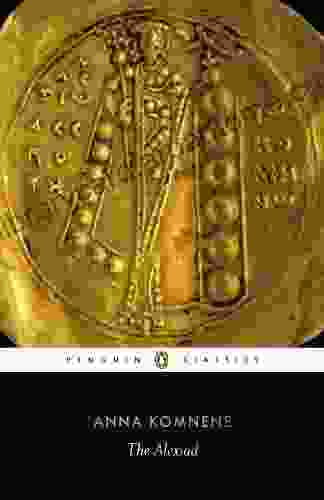
 Cason Cox
Cason CoxUnveil the Extraordinary World of "The Alexiad": A...
Delve into the Heart of Byzantine...

 Junot Díaz
Junot DíazUnveiling the Intricacies of Intellectual Property: Your...
In today's knowledge-driven economy,...

 Aleksandr Pushkin
Aleksandr PushkinThe Life of Louise Mathew Gregory: A Tapestry of Triumphs...
A Woman of Extraordinary Substance Louise...

 Leon Foster
Leon FosterHomemade Lotion For Beginners: Transform Your Skincare...
Step into the world of...
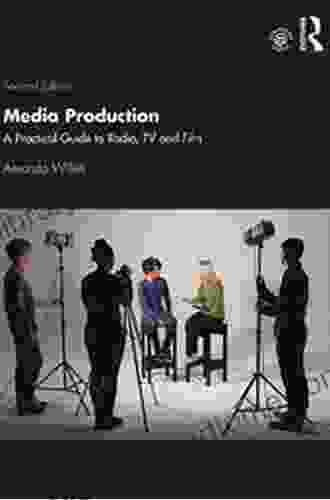
 Terence Nelson
Terence NelsonUnveiling the Secrets of Radio, Television, and Film: An...
: Embarking on a Journey into the...
4 out of 5
| Language | : | English |
| File size | : | 813 KB |
| Text-to-Speech | : | Enabled |
| Screen Reader | : | Supported |
| Enhanced typesetting | : | Enabled |
| Word Wise | : | Enabled |
| Print length | : | 16 pages |
| Lending | : | Enabled |


